Ravens fascinate people. Their obvious intelligence, their vocalizations, their roles in the mythologies of multiple 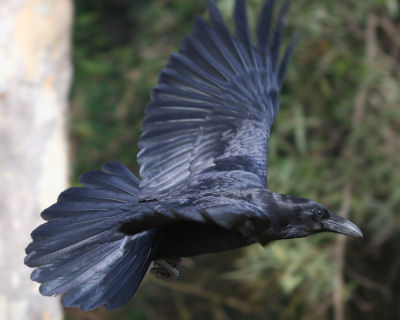 cultures, their all-black plumage, their cachet, their just plain coolness. And a good part of what makes ravens cool to the English speaking world is Edgar Allan Poe’s “The Raven.” Anyone who has ever heard “The Raven” read aloud remembers it. The internal rhymes, the classical allusions, the repetition of sounds and words, and the slow build from curiosity to horror all combine to make “The Raven” one of the best known poems of the nineteenth century, no small feat considering the quality of the verse that was written in the 1800s. Beyond being an amazing poem, however, “The Raven” has the additional attraction of being the subject of an essay by the poet himself that explains the process he used to write it. One doesn’t have to do a ton of research or a deep analysis to figure out what Poe was thinking as he wrote “The Raven” because he tells you in “The Philosophy of Composition.”
cultures, their all-black plumage, their cachet, their just plain coolness. And a good part of what makes ravens cool to the English speaking world is Edgar Allan Poe’s “The Raven.” Anyone who has ever heard “The Raven” read aloud remembers it. The internal rhymes, the classical allusions, the repetition of sounds and words, and the slow build from curiosity to horror all combine to make “The Raven” one of the best known poems of the nineteenth century, no small feat considering the quality of the verse that was written in the 1800s. Beyond being an amazing poem, however, “The Raven” has the additional attraction of being the subject of an essay by the poet himself that explains the process he used to write it. One doesn’t have to do a ton of research or a deep analysis to figure out what Poe was thinking as he wrote “The Raven” because he tells you in “The Philosophy of Composition.”
Before I go any further I would like to share, in full, Edgar Allan Poe’s best poem, first published way back in January of 1845. Please, if you are able, and if you have have never before encountered this poem, read it aloud, or, better yet, get someone else to read it aloud to you. Or listen to “The Raven” read by Basil Rathbone.
The Raven
Once upon a midnight dreary, while I pondered weak and weary,
Over many a quaint and curious volume of forgotten lore,
While I nodded, nearly napping, suddenly there came a tapping,
As of some one gently rapping, rapping at my chamber door.
`’Tis some visitor,’ I muttered, `tapping at my chamber door –
Only this, and nothing more.’Ah, distinctly I remember it was in the bleak December,
And each separate dying ember wrought its ghost upon the floor.
Eagerly I wished the morrow; – vainly I had sought to borrow
From my books surcease of sorrow – sorrow for the lost Lenore –
For the rare and radiant maiden whom the angels named Lenore –
Nameless here for evermore.And the silken sad uncertain rustling of each purple curtain
Thrilled me – filled me with fantastic terrors never felt before;
So that now, to still the beating of my heart, I stood repeating
`’Tis some visitor entreating entrance at my chamber door –
Some late visitor entreating entrance at my chamber door; –
This it is, and nothing more,’Presently my soul grew stronger; hesitating then no longer,
`Sir,’ said I, `or Madam, truly your forgiveness I implore;
But the fact is I was napping, and so gently you came rapping,
And so faintly you came tapping, tapping at my chamber door,
That I scarce was sure I heard you’ – here I opened wide the door; –
Darkness there, and nothing more.Deep into that darkness peering, long I stood there wondering, fearing,
Doubting, dreaming dreams no mortal ever dared to dream before;
But the silence was unbroken, and the darkness gave no token,
And the only word there spoken was the whispered word, `Lenore!’
This I whispered, and an echo murmured back the word, `Lenore!’
Merely this and nothing more.Back into the chamber turning, all my soul within me burning,
Soon again I heard a tapping somewhat louder than before.
`Surely,’ said I, `surely that is something at my window lattice;
Let me see then, what thereat is, and this mystery explore –
Let my heart be still a moment and this mystery explore; –
‘Tis the wind and nothing more!’Open here I flung the shutter, when, with many a flirt and flutter,
In there stepped a stately raven of the saintly days of yore.
Not the least obeisance made he; not a minute stopped or stayed he;
But, with mien of lord or lady, perched above my chamber door –
Perched upon a bust of Pallas just above my chamber door –
Perched, and sat, and nothing more.Then this ebony bird beguiling my sad fancy into smiling,
By the grave and stern decorum of the countenance it wore,
`Though thy crest be shorn and shaven, thou,’ I said, `art sure no craven.
Ghastly grim and ancient raven wandering from the nightly shore –
Tell me what thy lordly name is on the Night’s Plutonian shore!’
Quoth the raven, `Nevermore.’Much I marvelled this ungainly fowl to hear discourse so plainly,
Though its answer little meaning – little relevancy bore;
For we cannot help agreeing that no living human being
Ever yet was blessed with seeing bird above his chamber door –
Bird or beast above the sculptured bust above his chamber door,
With such name as `Nevermore.’
But the raven, sitting lonely on the placid bust, spoke only,
That one word, as if his soul in that one word he did outpour.
Nothing further then he uttered – not a feather then he fluttered –
Till I scarcely more than muttered `Other friends have flown before –
On the morrow he will leave me, as my hopes have flown before.’
Then the bird said, `Nevermore.’Startled at the stillness broken by reply so aptly spoken,
`Doubtless,’ said I, `what it utters is its only stock and store,
Caught from some unhappy master whom unmerciful disaster
Followed fast and followed faster till his songs one burden bore –
Till the dirges of his hope that melancholy burden bore
Of “Never-nevermore.”‘But the raven still beguiling all my sad soul into smiling,
Straight I wheeled a cushioned seat in front of bird and bust and door;
Then, upon the velvet sinking, I betook myself to linking
Fancy unto fancy, thinking what this ominous bird of yore –
What this grim, ungainly, ghastly, gaunt, and ominous bird of yore
Meant in croaking `Nevermore.’This I sat engaged in guessing, but no syllable expressing
To the fowl whose fiery eyes now burned into my bosom’s core;
This and more I sat divining, with my head at ease reclining
On the cushion’s velvet lining that the lamp-light gloated o’er,
But whose velvet violet lining with the lamp-light gloating o’er,
She shall press, ah, nevermore!Then, methought, the air grew denser, perfumed from an unseen censer
Swung by Seraphim whose foot-falls tinkled on the tufted floor.
`Wretch,’ I cried, `thy God hath lent thee – by these angels he has sent thee
Respite – respite and nepenthe from thy memories of Lenore!
Quaff, oh quaff this kind nepenthe, and forget this lost Lenore!’
Quoth the raven, `Nevermore.’`Prophet!’ said I, `thing of evil! – prophet still, if bird or devil! –
Whether tempter sent, or whether tempest tossed thee here ashore,
Desolate yet all undaunted, on this desert land enchanted –
On this home by horror haunted – tell me truly, I implore –
Is there – is there balm in Gilead? – tell me – tell me, I implore!’
Quoth the raven, `Nevermore.’`Prophet!’ said I, `thing of evil! – prophet still, if bird or devil!
By that Heaven that bends above us – by that God we both adore –
Tell this soul with sorrow laden if, within the distant Aidenn,
It shall clasp a sainted maiden whom the angels named Lenore –
Clasp a rare and radiant maiden, whom the angels named Lenore?’
Quoth the raven, `Nevermore.’`Be that word our sign of parting, bird or fiend!’ I shrieked upstarting –
`Get thee back into the tempest and the Night’s Plutonian shore!
Leave no black plume as a token of that lie thy soul hath spoken!
Leave my loneliness unbroken! – quit the bust above my door!
Take thy beak from out my heart, and take thy form from off my door!’
Quoth the raven, `Nevermore.’And the raven, never flitting, still is sitting, still is sitting
On the pallid bust of Pallas just above my chamber door;
And his eyes have all the seeming of a demon’s that is dreaming,
And the lamp-light o’er him streaming throws his shadow on the floor;
And my soul from out that shadow that lies floating on the floor
Shall be lifted – nevermore!
Poe must have sat down and written the whole poem in a burst of inspiration because how else could something so beautiful have been created, right? Wrong. Poe carefully and methodically wrote this poem, first deciding on a refrain, narrowing it down to a single word, and then deciding on “Nevermore” as the word that would work best but he almost went on a radically different path from the one he took in writing his poem.
How disturbing is the thought that Poe almost put the word “Nevermore” into the mouth of a parrot? It could have happened, as he explained in the aforementioned essay, because he had chosen “Nevermore” as the refrain of the poem but was having a hard time coming up with a plausible reason for a character to say “Nevermore” over and over again. That is when he hit upon the idea of a non-human serving as the chorus:
I did not fail to perceive, in short, that the difficulty lay in the reconciliation of this monotony with the exercise of reason on the part of the creature repeating the word. Here, then, immediately arose the idea of a non-reasoning creature capable of speech, and very naturally, a parrot, in the first instance, suggested itself, but was superseded forthwith by a Raven as equally capable of speech, and infinitely more in keeping with the intended tone.
Though the poem is called “The Raven” and the bird’s somber pronunciations are often what is most remembered about it, the poem is not really about a bird. Poe felt that there was only one real reason to write a poem, and that was to express beauty:
Beauty is the sole legitimate province of the poem…That pleasure which is at once the most intense, the most elevating, and the most pure is, I believe, found in the contemplation of the beautiful. When, indeed, men speak of Beauty, they mean, precisely, not a quality, as is supposed, but an effect- they refer, in short, just to that intense and pure elevation of soul- not of intellect, or of heart- upon which I have commented, and which is experienced in consequence of contemplating the “beautiful.” Now I designate Beauty as the province of the poem, merely because it is an obvious rule of Art that effects should be made to spring from direct causes- that objects should be attained through means best adapted for their attainment
Why, then, would one write a poem in which the narrator gradually drives himself into a frenzy of despair over a bird’s replies to his questions about a lost love? Again, Poe provides the anwer:
Regarding, then, Beauty as my province, my next question referred to the tone of its highest manifestation- and all experience has shown that this tone is one of sadness. Beauty of whatever kind in its supreme development invariably excites the sensitive soul to tears. Melancholy is thus the most legitimate of all the poetical tones.
The loss of a lover is thus the best possible way to express beauty through poetry which might explain why the romantic poets remain perpetually popular and also why teenage goths so often fail to fall for prose while professing a preference for poetry.
“The Raven” is therefore, if one uses Poe’s own measuring stick, a nearly perfect poem. That it is still one of the most anthologized poems is testament not to sudden inspiration but to dogged determination and careful, thoughtful writing. Bird bloggers, like anyone else who use the written word, could learn a thing or two from Edgar Allan Poe.
And, of course, there is the fact that Edgar Allan Poe was a birder…
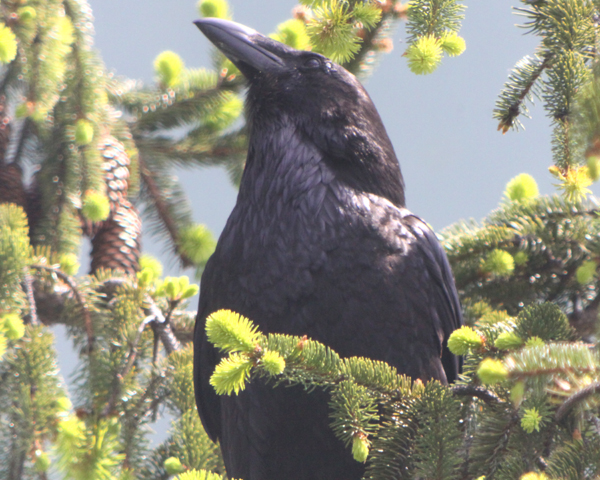
…
If you liked this post and would like to browse the entire archive of poetry posts on 10,000 Birds please check out our Bird Poems page.
…








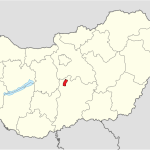


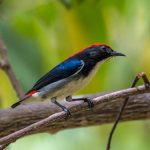
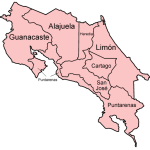
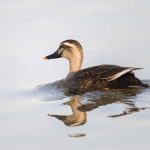
Goethe and Poe?
In my humble, yet universally acceptable and irrefutable opinion (yes, I am serious…), the German original of Goethe’s “Faust” and Poe’s “Raven” are the quintessential apex of language. It sometimes seems as if language went through eons of slow evolution with the sole intention of culminating in these two compositions (does this statement make me a creationist?). Everything else just fades into the background, with the possible exception of “Something in the Mermaid Way”.
And I disagree with you on one thing: The Raven should never be read aloud. It should either be heard read aloud by a skilled narrator, or should be sung silently within, for it is music as much as it is poetry.
And you must have either googled with a passion or done quite some very dusty archive work to find that bit on Poe being a birder! 😉
One of my favourite definitions of a poet is “someone who can write down what most people can only feel”. In as much, I don’t think that there is such a thing as a perfect poem, only perfect poems for a moment.
The Raven is one of my favourite poems, and like you I like my poetry spoken. I’ll disagree with Jochen (although only moderately), while it is great to listen to the Raven by a skilled orator, it can give people great pleasure to “sing” it themselves out loud (to carry on with his music analogy). Others may not like my rendition, but I greatly enjoy it, and that is the point.
Clare, I’m with you on the pleasure of narrating this perfect poem aloud. I can only compare the exhilaration of speaking in this meter to that of reading some of Dr. Seuss’ best work (e.g. Fox in Socks, Cat in the Hat) out loud.
Jochen, how serendipitous that we served up works by your two favorite poets in the span of days. Clearly, the karmic wheel spins in your favor! I love your piece on Poe as a birder; is that poem authentic?
It’s an authentic poem by Poe, I simply changed a few words here and there (not just the last line about the Prothonotary).
And it – the wheel of karma – definitely does, as it has wheeled a Black Stork my way (see best bird of the weekend). That is seriously good bird stuff.
This is an excellent post, The Raven is a brilliant poem and I really enjoyed reading Poe’s article about how he wrote it, most interesting that he started with the structure well before he’d thought of a subject
The significance and brilliance of The Raven completely evaded me the first time I read it. Your post and the website Shmoop have really helped me understand this poem better, so thank you for sharing?. Poe’s description of the raven is very interesting to me; while the bird represents darkness, despair, loss, sorrow, it is simultaneously beautiful, regal, in his eyes. This really illustrates what he says in his essay about sadness, melancholy being beautiful emotions, especially when expressed as poetry.
How long did it take to write this great poem?
ahahahahaha so stupid
excellent work… I love it.. keep post, i love tow write poems 2. like short poems. birds poems, sad poems, wild birds, raven.. so thank you to read..